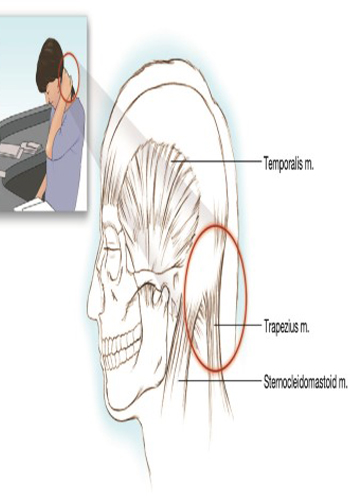
Tension Headache
Tension Headache
Tension headache is the most common type of headache seen in the community, which can be episodic and chronic. Tension headaches and sleep disorders are common in people who have unsolvable problems in their job, marriage, in short, in their social life. and sleep disorders. In the evaluation made with the Minnesota multidimensional personality inventory, it was found that tension-type headache was not only borderline depression but also somatization disorder in large patient groups. has also revealed. According to the researchers, this somatization disorder was evaluated as only contraction and tension in some patient groups, while it appeared as headache in some patient groups. tension-type headache It is usually bilateral but can also be unilateral. Tension-type headaches are usually seen in the forehead, temples and posterior regions of the head (frontal, temporal and occipital). Tension-type headaches can last for hours or days and tends to remain stable without progression after reaching the peak. It is auraless but causes marked sleep disturbances such as difficulty falling asleep, frequent waking at night or waking early. headaches it was most common between 4:00 and 8:00 am and between 16:00 and 20:00. Although both sexes are affected, female patients are dominant. Tension-type headache has no hereditary pattern, but such headaches occur in family clusters. can occur because children can imitate their parents. The event that triggers an acute or episodic tension headache is always physical or psychological stress. Heavy workload, long journeys, physical stress Stretched position as a result of acute cervical spine injury, degenerative cervical spine conditions such as cervical spondylosis can also trigger tension-type headache.
Cervical Epidural Nerve Block
Multiple studies, demonstrated the efficacy of cervical epidural nerve block with steroid in long-term relief. This treatment can also be used while the efficacy of antidepressant treatment is awaited. Cervical epidural nerve block causes clinical symptoms. It can be done daily or weekly depending on the Clinical Pearls
The diagnosis of tension-type headache is often confused with migraine. By taking a detailed headache history and performing a targeted physical examination, the physician can determine the definitive can diagnose. Excellent palliation and long-term pain control can be achieved with pharmacological and non-pharmacological treatments.
